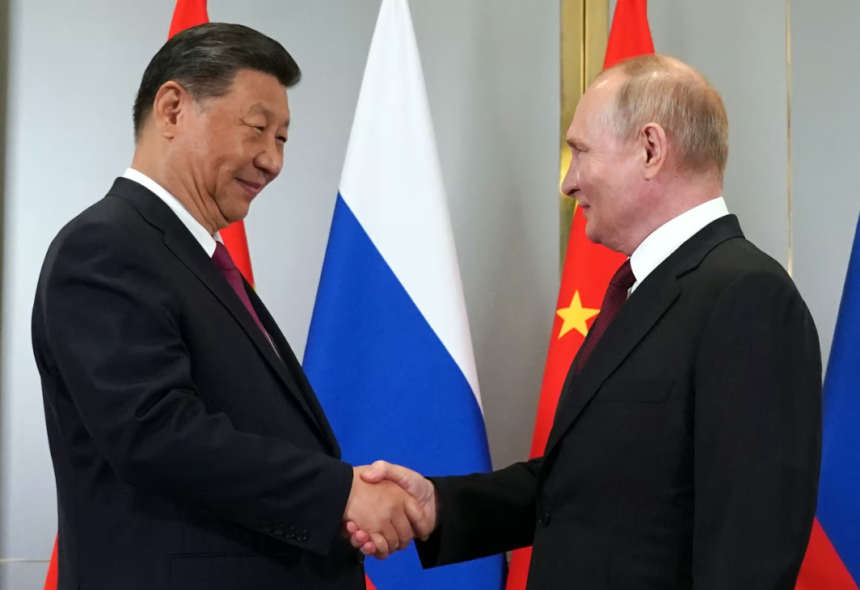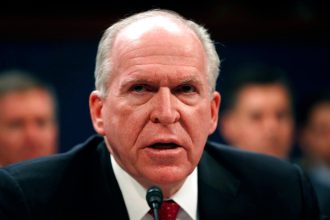In return, China is getting top-secret Russian military technologies.
Deputy Secretary of State Kurt Campbell of the United States told reporters on Tuesday that Beijing was providing Moscow with “very substantial” help to build up its war machine in return for Russia ceding its closely guarded military technology on missiles and submarines.
After huddling with European Union and NATO counterparts in Brussels, Campbell ratcheted up the pressure on Beijing in a small group discussion with media, including POLITICO. The United States has zeroed in on Beijing’s supply of dual-use technology, or those that have both military and civilian uses.
Washington says China is now openly supporting the Russian military. Moscow desperately needs the technology to ramp up its military production to sustain its war against Ukraine amid international sanctions.
Campbell said of China’s latest materials being supplied to Russia, “These are not dual-use capabilities.” “These are being applied directly to the Russian war machine.”
“These are component pieces of a very substantial effort on the part of China to help sustain, build and diversify various elements of the Russian war machine,” he continued. “The senior levels of both governments are working to hide and protect parts of this troubling partnership. The majority of these activities have been forced underground.”
China proceeds with its “neutral position” regarding the crisis and has repeatedly released statements of protestation against claims that it is supplying arms to Russia for use in Ukraine.
Russia, on its part, has begun providing China with missiles and submarines, among other essential technology in return for Beijing’s support. Moscow has never been willing to transfer its most significant military technologies to Beijing.
“The capabilities that Russia is providing is support in areas where previously they had been, quite frankly, reluctant to engage directly with China,” added Campbell. “We are concerned about a certain number of military domains where there seems to be a degree of resolve to offer China more assistance.
“That has to do with submarine operations, activities of aeronautical design, including stealth; that too involves capacities on missile capabilities,” he said.
Besides the United States, Campbell says, South Korea, Japan, Australia, and India would also be vulnerable to Beijing’s new technology “if China was able to receive greater engagement from Russia in perfecting certain military capabilities.”
The latest disclosure from Campbell said that this is two weeks after Chinese President Xi Jinping, among high-ranking officials, was visited by U.S. National Security Adviser Jake Sullivan in his first visit to Beijing.
The administration has amplified the growing pressure on the European Union from U.S. officials to respond more strongly to Beijing’s support for Moscow in the Russian war against Ukraine.
“We have made clear of our observation of financial activities and support for some of these efforts,” said Campbell. “We think that Europe can speak out more about its particular concerns, and we believe that simply putting certain financial institutions in a mode of being watched more carefully – and making that clear – will have significant consequences.”














